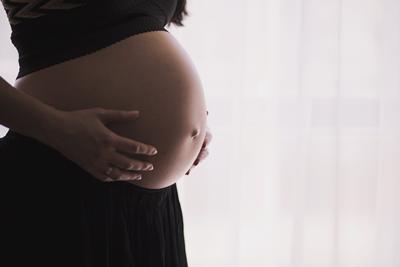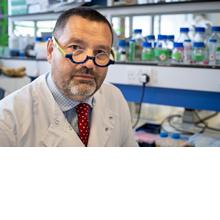New study to find underlying causes of maternal asthma during pregnancy on the origin of asthma in early life

Researchers at the University of Southampton are to begin a new study investigating the underlying causes of asthma from before birth and in early childhood.
The study will test how the mother’s asthma during pregnancy changes asthma related mediators such as the ADAM33 gene in samples collected during elective caesarean birth. The levels of several possible asthma mediators will be measured using multiple novel research techniques.
Dr Hans Michael Haitchi, Associate Professor in Respiratory Medicine, will lead the research, which is being funded by the British Medical Association (BMA) Foundation for Medical Research with the James Trust grant for research into asthma (£64,954).
Maternal asthma during pregnancy is a strong risk factor for development of asthma in children and ADAM33 is an asthma gene known to be associated with asthma, airway twitchiness and later decline in lung function in children in early life.
Previous mouse studies led by Dr Haitchi, have discovered that a soluble form of the ADAM33 protein is increased in fluid that surrounds the baby in the womb (amniotic fluid) and in the lungs from new born mouse pups from mice who had an allergic inflammation of the airways during pregnancy.
Work from the group suggests that if ADAM33 is switched off or prevented from being released, the features of asthma will be reduced, making ADAM33 a novel target as new therapy to prevent or treat asthma.
Dr Haitchi said: “Our previous pre-clinical studies have shown that maternal allergic inflammation of the airways during pregnancy has an effect on the offspring causing increased asthma mediators such as soluble ADAM33 in the lungs and increased twitchiness of the airways.”
“Therefore, we now wish to test if allergic asthma in pregnant mothers has an effect on ADAM33 in the amniotic fluid, placenta and blood collected from new-born babies that may explain why children born to asthmatic mothers have an increased risk of developing asthma.”
The new grant has been awarded to Drs Haitchi, and Matthew Coleman, Consultant in Obstetrics, Fetal and Maternal Medicine and Honorary Senior Lecturer; Marieke Wandel, research assistant; and Dr Rob Ewing, Associate Professor in Proteomics and Systems Biology, all from the University of Southampton. The research will be done in collaboration with Professors Jeffrey Whitsett and Assem G Ziady of Cincinnati Children’s Hospital Medical Center, USA.
